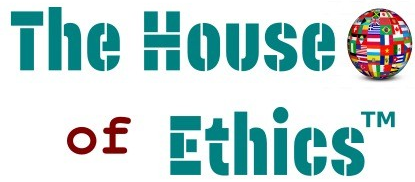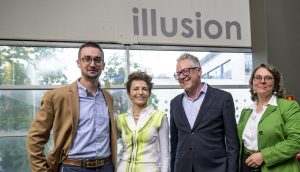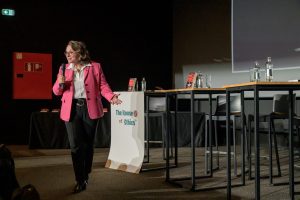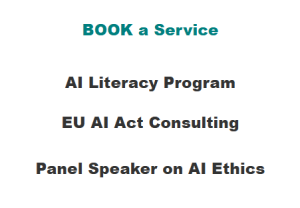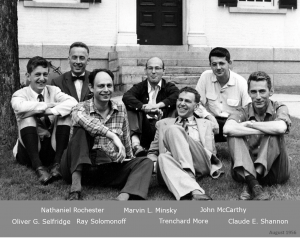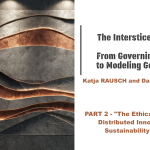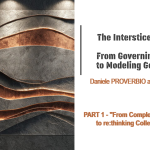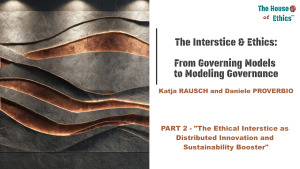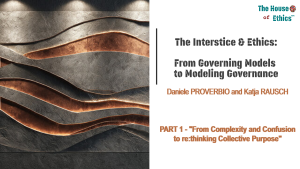Why did Annie Duke’s book catch our attention when talking about ethics? How can “thinking in bets” be relevant for ethical decision-making?
Analyzing the process of decision-making is nothing new. Ever since advertising and the adjacent commercial techniques boomed in the 1950s, numerous diagrams of “decision trees” have circulated, and theories have been cultivated in behavorial sciences, psychology, finance, business, e-commerce and so on. A “decision tree” normally refers to a flowchart that starts with one main idea and then branches out based on the consequences of your decisions. However there has never been ONE tree for all decisions, one unique model of reference simply because it cannot be carved in stone; deals with humans, internal and external changing parameters, with changes in behavior, lifestyle, attitude and fluctuating trends.
Annie Duke addresses THE most crucial question right at the beginning: “Why This Isn’t a Poker Book?”. Simply because the analogy between life and Poker exceeds its semantics : the word “Game”. Because the parameters of Poker are similar to most parameters in life. Because there is uncertainty. Always.
In fact, Duke’s book is closer to von Neumann’s Game – theory, and the quest for better mastering one’s decisions in daily life than it is to mastering Poker. You won’t learn Poker with this book. But you might learn to improve your decision skills.
This is were ethics comes in to play. Ethics as an actional philosophy has always been about optimal decision-making, about creating new perspectives to improve choices, to generate a decent, right/acceptable behavior in any given situation.
So what can we actually learn from the process of “thinking in bets” inspired by Poker?
And why is Poker the relevant game as opposed to Chess?
For sure, Annie Duke’s book “Thinking in Bets” offers a fresh view on the ethical reasoning process in our VUCA world, and thus makes it highly relevant in our ultra-frequent need of being top performers in the best possible ethical decisions imitation game.
Ethical decision-making compared to high-frequency trading?
Annie Duke uses Poker as well as the foundation of her analogy/thesis of “thinking in bets” as an illustrative story-telling element throughout her book (which with numerous references to baseball do not ideally resonate with European readers).
The Poker elements are abundantly completed by numerous references to scientific research results and theories by anthropologists, behaviorists, scientists and cognitive experts.
The opening chapters underline a non-negotiable fact: we are constantly faced with choosing amongst possible futures, featuring one certain element – uncertainty.
Most situations in our lives are complex because there is an overload of hidden information, noise (as opposed to signal), irrationality and biases.
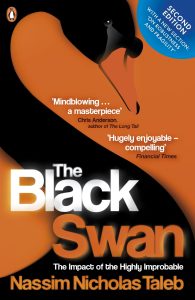
The “Black Swan” theory by Nassim Taleb is elegantly sliding throughout the pages.
Embracing the idea of uncertainty and emergence when talking about ethical decision-making (were we are mostly trained to believe that ethical principles are carved (or should be carved) in stone by an elite, international regulators, leading and popular philosophers and alike) is the most important take-away of “thinking in bets”.
After reading Annie Duke’s book, the process of our continuous ethical reasoning in highly uncertain environments can be compared to high-frequency trading.
Instead of chronologically following the chapters of the book, we decided to reorganize the review by themes relevant to ethics.
Why Poker and not Chess?
Chess has always been hailed as the superstar amongst the noble games. Whereas Poker is often assimilated to smoking, drinking and bluffing gamblers relying on tricks, bluffs, and poker faces. The connotation of Poker is highly negative.So why relating it to noble ethics?
However it is Poker that equates best with life, best with decision-making, thus best with ethics.
Remember computational bigbangs like IBM’s supercomputer Big Blue beating the world Chess Master Garry Kasparov in 1997 (a world sensation) or Google’s AlphaGo beating world champion Lee Sedol in Go. Chess.

And yet Poker seems to be a better fit for looking at life decisions.Why?
Maybe because with Poker there is no board. There is no limited set of pieces unlike with Chess.
In 1944, John von Neumann published with Oskar Morgenstern the “Theory of Games and Economic Behavior”. One of the “100 Most Influential Books of the Century” which includes their famous Theory of Games.
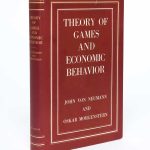
It is the “modern basis for the study of the bulk of our decision-making, addressing the challenges of changing conditions, hidden information, chance, and multiple people involved in the decisions.”
Why Poker and not Chess?
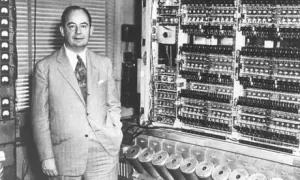
“Chess is not a game. Chess is a well-defined form of computation. You may not be able to work out the answers, but in theory there must be a solution, a right procedure in any position. Now, real games,’ he said, ‘are not like that at all. Real life is not like that. Real life consists of bluffing, of little tactics of deception, of asking yourself what is the other man going to think I mean to do. And that is what games are about in my theory.”
UNCERTAINTY
What is the contrary of “uncertainty”?
Stability, rigidity, certainty?
Annie Duke focuses on beliefs. Our beliefs and biases that lead us sometimes astray when deciding. Even the belief on beliefs is misleading us.
“Declaring our uncertainty in our beliefs to others makes us more credible communicators. We assume that if we don’t come off as 100% confident, others will value our opinions less. The opposite is usually true.”
Our neglect or incapacity to “incorporating percentages or ranges of alternatives into the expression of our beliefs” can lead to unsatisfactory decisions.
Linking beliefs to the unfolding future, being receptive to The New, to Change, seems to be the hardest part for improving our accurate behavior. Duke avoids calling decisions right or wrong. She points to accurate or not accurate. Accuracy being key.
“Acknowledging that decisions are bets based on our beliefs, getting comfortable with uncertainty, and redefining right and wrong are integral to a good overall approach to decision-making.”
The author also debunks one major erroneous correlation: that bad outcomes are always the result of bad choices.
Fact is that we learn from experience and we get better at assessing the likelihood of a particular outcome given any decision, making our predictions about the future more accurate.
LUCK vs SKILLS
Happenings in life are the result of two things: the influence of skills and the influence of luck.
In this context, an insidious bias pops up : self-serving bias. For Annie Duke, “self-serving bias” is the term for a pattern of fielding outcomes. Yes, we act in patterns, dark patterns sometimes similar to computational black boxes.
Duke refers to psychologist Fritz Heider who was a pioneer in studying how people make luck and skill attributions about the results of their behavior.
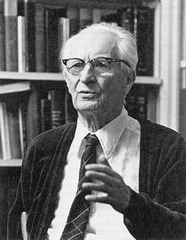
For Heider we study our outcomes like scientists, but like “naïve scientists.” When we figure out why something happened, we look for a plausible reason, but one that also fits our wishes.
“It is usually a reason that flatters us, puts us in a good light, and it is imbued with an added potency by the attribution.” Heider
Duke continues : “unfortunately, learning from watching others is just as fraught with bias. Just as there is a pattern in the way we field our own outcomes”.
One major flaw in our thinking process is related to what Duke calls “black-and-white thinking”, uncolored by the reality of uncertainty. It is a driver of both motivated reasoning and self-serving bias.
The importance of GROUP APPROACH
The group approach can help with reshaping habits. It can easily be observed with eating habits (new trends, new superfoods) or physical activity. Trends or groups can influence, can change our behavior. Why not our ethical reasoning and behavior. (Our article on Swarm Ethics)
“Being in a group can improve our decision quality by exploring alternatives and recognizing where our thinking might be biased, but a group can also exacerbate our tendency to confirm what we already believe.”
Philip Tetlock and Jennifer Lerner, experts on group interaction, described the two kinds of group reasoning styles in an influential 2002 paper: “Whereas confirmatory thought involves a one-sided attempt to rationalize a particular point of view, exploratory thought involves even-handed consideration of alternative points of view.”
Confirmatory thought amplifies bias promotes motivated reasoning and its main purpose is justification. It leads to the celebration of one’s own beliefs, and can even lead to the “pensée unique”, groupthink.
Exploratory thought encourages an open-minded and objective consideration of alternative hypotheses. It is a form of cognitive dissent to combat bias. Exploratory thought helps the members of a group reason toward a more accurate representation of the world.
We all are familiar with terms like “echo chamber” or “filter bubbles”, in the digital world. Or “silo thinking” in industries or specific businesses.
At this point, Duke invokes the importance of accountability, in relation to exploratory thinking presented by Tetlock and Lerner.
Incorporating the idea of an initial pre-accountability and not just the usual post-accountablity for the consequences of our decisions.
We need other people to fill in our blind spots / biases
ACCOUNTABILITY as a catalyst in ethical reasoning
Accountability is the corner stone of ethics.
Without accountability, ethics is void and mostly used as PR by major market players.
As individuals we might place accountability right at the beginning of our ethical reasoning. However, shouldn’t accountability be understood and used as a catalyst right at the start of the “ethical process of deciding”?
No no longer be considered as an after-effect of the outcome, of the consequences of individual choices?
A change in perspective and attitude could be a major take-away for ethical reasoning!
“Complex and open-minded thought is most likely to be activated when decision makers learn prior to forming any opinions that they will be accountable to an audience (a) whose views are unknown, (b) who is interested in accuracy, (c) who is reasonably well-informed, and (d) who has a legitimate reason for inquiring into the reasons behind participants’ judgments/choices.” (Tetlock & Lerner)
Telock and Lerner’s 2002 paper showed how groups can improve the thinking of individual decision-makers when the individuals are accountable to a group whose interest is in accuracy.
But what form of accountability? Accountability to my environment? Accountability to the group? Accountability to accuracy?
BENEFITS of "thinking in bets" for ethical reasoning
“We don’t win bets by being in love with our own ideas. We win bets by relentlessly striving to calibrate our beliefs and predictions about the future to more accurately represent the world.”
Where could we start with to improve or train our ethical reasoning?
Separate self-serving bias from exploratory thinking : calibrate decisions using experience, observation, communication.
Separate the outcome quality from a decision quality : understand that a good decision can have a bad outcome and vice versa (not all laws are ethical). The mechanism of resulting is the mistake of equating the quality of a decision to the quality of an outcome.
Separate luck from skill : embrace uncertainty and use uncertainty to one’s advantage. Figure out “how” unsure you are.
Separating noise from signal : work against patterns, bias and hidden information.
Our bets, our decisions are only as good as our beliefs, as our information, our understanding.
“Thinking in Bets” might help us to open up to others, to other cultures and ways thinking and behaving, and help us reshape what’s “wrong” or “right” at any given moment.
Spécialisée dans l’éthique des nouvelles technologies, Katja Rausch travaille sur les décisions éthiques appliquées aux domaines tels l’intelligence artificielle, la data éthique, les interfaces machine-homme, la roboéthique ou la Business éthique.
Pendant 12 ans, Katja Rausch a enseigné les Systèmes d’Information au Master 2 de Logistique, Marketing & Distribution à la Sorbonne et pendant 4 ans les Data Ethics au Master de Data Analytics à la Paris School of Business.
Diplômée de la Sorbonne, Katja Rausch est linguiste et spécialiste en littérature du 19ème siècle. Partie à la Nouvelle-Orléans aux États-Unis, elle a intégré la A.B. Freeman School of Business pour un MBA en leadership et enseigné à Tulane University. À New York, elle travaille pendant 4 ans pour Booz Allen & Hamilton, management consulting. De retour en Europe, elle devient directrice stratégique pour une SSII à Paris où elle conseille, entre autres, Cartier, Nestlé France, Lafuma et Intermarché.
Auteure de 6 livres dont un dernier en novembre 2019, Serendipity ou Algorithme (2019, Karà éditions). Elle apprécie par-dessus tout les personnes polies, intelligentes et drôles.
- Katja Rausch
- Katja Rausch
-
